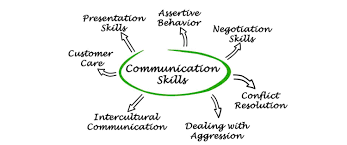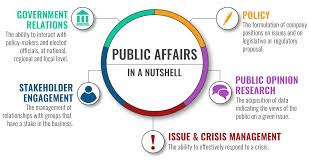Mastering Media Relations in PR: A Key Strategy for Effective Communication
The Importance of Media Relations in Public Relations
Media relations play a crucial role in the field of public relations (PR). Establishing and maintaining positive relationships with the media is essential for businesses and organisations to effectively communicate their messages to the public.
One of the key benefits of media relations is that it helps businesses gain exposure and visibility. By securing media coverage through press releases, interviews, and other PR tactics, companies can reach a wider audience and increase brand awareness.
Furthermore, media relations can help build credibility and trust. When a reputable media outlet features a business or organisation in a positive light, it enhances their reputation and can influence public perception.
Effective media relations also allow businesses to control their narrative. By proactively engaging with journalists and providing them with accurate information, companies can shape how they are portrayed in the media.
Building strong relationships with journalists and reporters is key to successful media relations. PR professionals need to understand the needs and preferences of different media outlets and tailor their pitches accordingly. By fostering trust and open communication with the media, businesses can increase their chances of securing coverage.
In today’s digital age, social media has also become an important component of media relations. PR professionals need to leverage social platforms to engage with journalists, share news updates, and monitor conversations about their clients or brands.
In conclusion, media relations is an integral part of public relations that helps businesses connect with the media, reach a wider audience, build credibility, control their narrative, and enhance their reputation. By investing time and effort into cultivating positive relationships with the media, companies can effectively manage their public image and achieve their communication goals.
7 Essential Tips for Effective Media Relations in Public Relations
- Maintain open and honest communication with media representatives.
- Tailor your messages to suit the interests of different media outlets.
- Respond promptly to media inquiries and requests for information.
- Build and nurture relationships with key journalists and influencers.
- Be proactive in sharing newsworthy updates and press releases.
- Always fact-check information before releasing it to the media.
- Monitor media coverage and be prepared to address any negative publicity.
Maintain open and honest communication with media representatives.
Maintaining open and honest communication with media representatives is a fundamental tip in effective media relations within the realm of public relations. By establishing transparent dialogue and sharing accurate information with journalists and reporters, PR professionals can build trust and credibility. This approach not only fosters positive relationships with the media but also ensures that the messaging conveyed aligns with the organisation’s values and objectives. Open communication paves the way for constructive interactions, facilitates smoother collaborations, and ultimately enhances the overall success of media relations efforts.
Tailor your messages to suit the interests of different media outlets.
To effectively engage with the media in public relations, it is essential to tailor your messages to suit the interests of different media outlets. Understanding the unique preferences and focus areas of each media platform allows PR professionals to craft pitches and stories that resonate with journalists and their audiences. By customizing messages to align with the specific needs of diverse media outlets, businesses can increase their chances of securing coverage and generating positive publicity. This personalised approach demonstrates a thoughtful understanding of the media landscape and enhances the relevance and impact of communication efforts.
Respond promptly to media inquiries and requests for information.
In the field of public relations, it is crucial to respond promptly to media inquiries and requests for information. Timely responses not only demonstrate professionalism and respect for journalists’ deadlines but also help maintain positive relationships with the media. By being responsive and providing accurate information in a timely manner, PR professionals can enhance their credibility, secure media coverage, and effectively communicate their clients’ messages to the public.
Build and nurture relationships with key journalists and influencers.
Building and nurturing relationships with key journalists and influencers is a fundamental tip in media relations for public relations. By establishing strong connections with these media professionals, PR practitioners can enhance their ability to secure valuable coverage for their clients or brands. Maintaining open lines of communication, understanding the preferences and interests of journalists and influencers, and providing them with relevant and engaging content are essential steps in building lasting relationships that can lead to positive media exposure and increased credibility.
Be proactive in sharing newsworthy updates and press releases.
To excel in media relations within public relations, it is essential to adopt a proactive approach by consistently sharing newsworthy updates and press releases. By taking the initiative to communicate relevant information to the media, businesses can seize opportunities to capture attention, generate interest, and shape the narrative surrounding their brand. Being proactive in sharing news ensures that key messages reach the intended audience in a timely manner, enhancing visibility and credibility in the eyes of journalists and the public alike.
Always fact-check information before releasing it to the media.
It is essential in media relations to always fact-check information before releasing it to the media. Accuracy and credibility are paramount when communicating with journalists and the public. By verifying the information and ensuring its accuracy, PR professionals can maintain trust with the media and avoid potential reputational damage that may arise from disseminating incorrect or misleading information. Fact-checking demonstrates a commitment to integrity and professionalism, ultimately contributing to successful media relations efforts.
Monitor media coverage and be prepared to address any negative publicity.
Monitoring media coverage and being prepared to address any negative publicity is a crucial tip in media relations for public relations (PR). By staying vigilant and keeping track of how your brand or organisation is portrayed in the media, you can quickly identify any negative coverage or potential issues that may arise. Being proactive in addressing negative publicity allows you to respond swiftly, mitigate damage to your reputation, and control the narrative surrounding your business. By having a well-thought-out crisis communication plan in place, you can effectively manage challenging situations and maintain trust with your audience.










